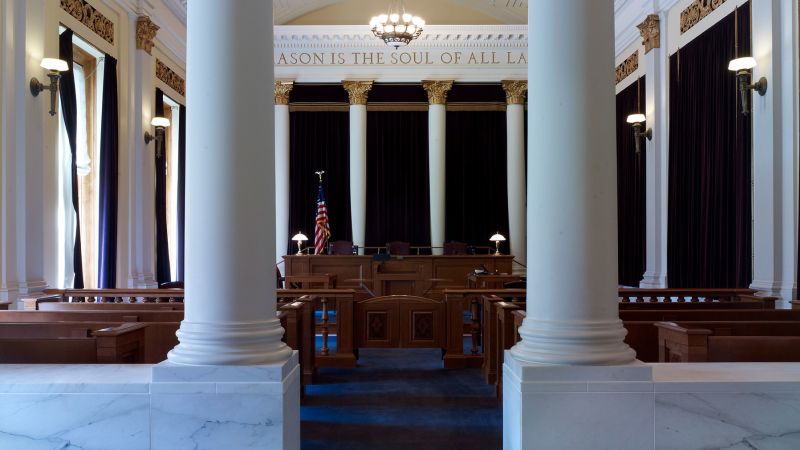
Even after unanimous Senate approval, a bill addressing dire judge shortage faces uphill climb in the House
CNN
Across the country, federal courts are buckling under an ever-increasing caseload in the absence of long-awaited congressional action that would add judges to match a significant growth in litigation over the last several decades.
Across the country, federal courts are buckling under an ever-increasing caseload in the absence of long-awaited congressional action that would add judges to match a significant growth in litigation over the last several decades. It’s been 34 years since lawmakers last passed a comprehensive bill increasing the number of judges on lower courts. In that period, the American population has grown by 80 million. The number of filings in US district courts increased by more than 30%. In the past year, there were more than 724,000 pending cases being handled by a federal trial bench made up of 677 judgeships (including roughly 40-50 vacancies) – a 72% increase in pending cases over the last decade, during which, no new district seats have been created. “We really are pressed to get all of the work done that litigants demand of us, and it affects the quality of the justice that they receive,” Judge Mary Scriven, a federal judge in Tampa, Florida, told CNN. The staffing shortfall, she and other judges told CNN, is costing litigants time and money, while undermining public confidence in the judiciary. Whether it is addressed any time soon will depend on whether the House can pass in the coming weeks legislation that would create 66 new judgeships – 63 of them permanent – to the country’s most overburdened court districts. The legislation – known as the known as the JUDGES Act or “Judicial Understaffing Delays Getting Emergencies Solved” Act – was quietly approved by the Senate without any opposition just before the August recess. The bill, which has a House counterpart with bipartisan sponsorship, could face long odds in that chamber where lawmakers will have limited floor time in September, a priority to vote on messaging bills that drive home their political arguments in the weeks before the election and a government shutdown looming they’ll need to avert. The legislation isn’t seen as a top priority for many, and leadership would need to step in as Speaker Mike Johnson is managing an unruly and narrow majority. Supporters of the JUDGES Act say that the odds of it passing shrink considerably after the election, when it will become clear which party will get to appoint the first round of new judges allotted by the bill.





















 Run 3 Space | Play Space Running Game
Run 3 Space | Play Space Running Game Traffic Jam 3D | Online Racing Game
Traffic Jam 3D | Online Racing Game Duck Hunt | Play Old Classic Game
Duck Hunt | Play Old Classic Game











